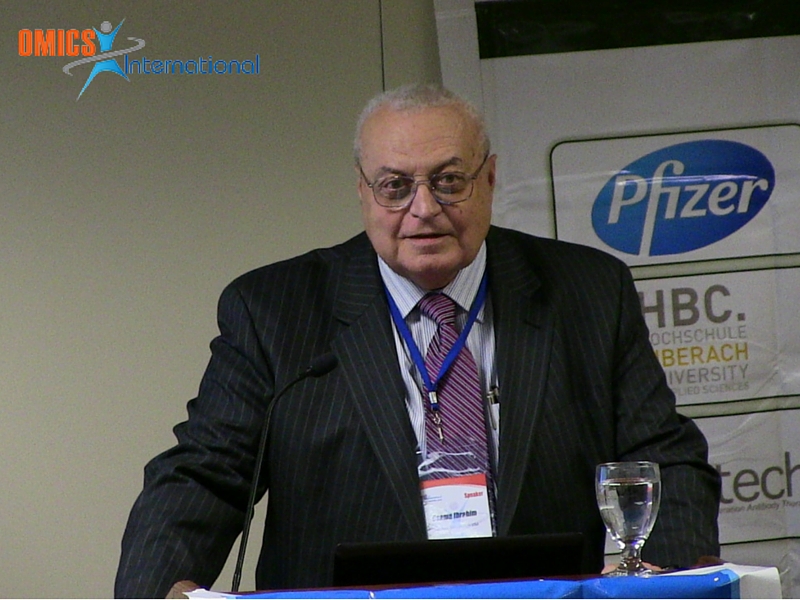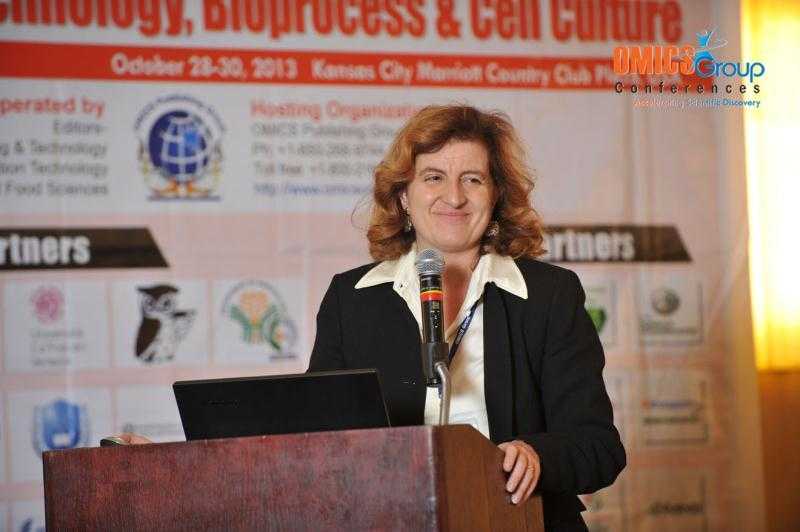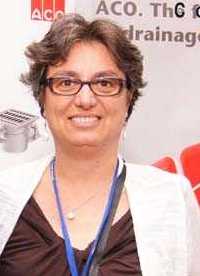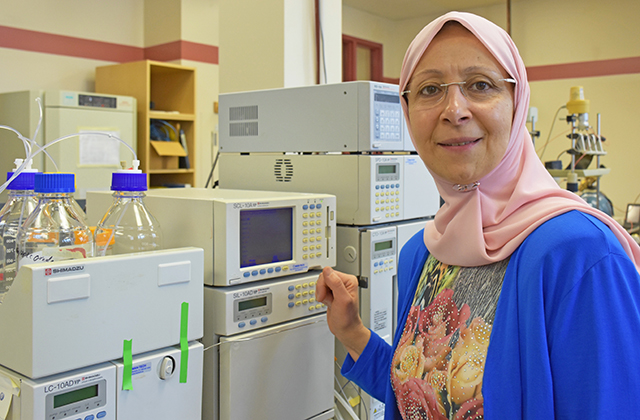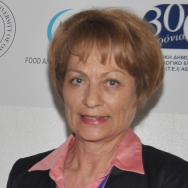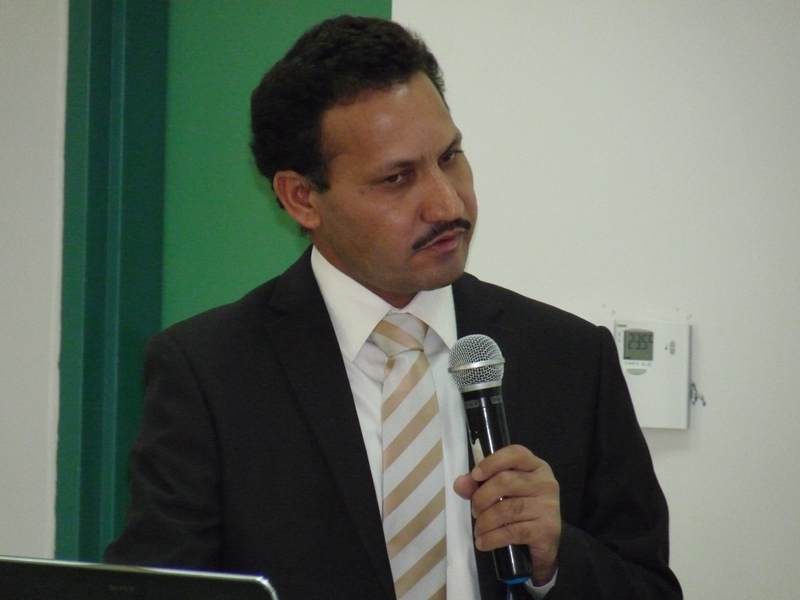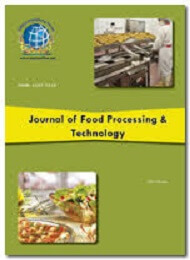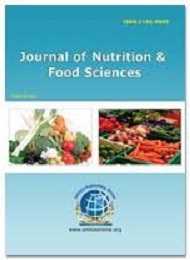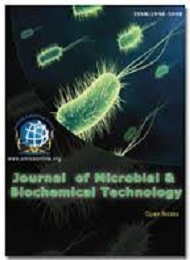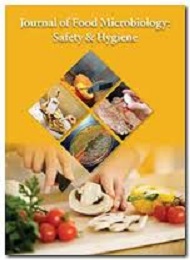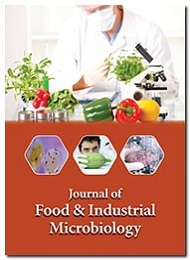Theme: Accelerating Research and Innovation in Food Microbiology
Food Microbiology 2017
ConferenceSeries Ltd invites speakers, participants, students, delegates and exhibitors from all over the world to attend 2nd International Conference on Food Microbiology (Food Microbiology 2017), during November 29-30, 2017 at Madrid, Spain. This includes prompt keynote presentations, workshops, symposia, oral talks, young research forum, poster presentations and exhibitions. This revered conference will be focusing on the theme “Accelerating Research and Innovation in Food Microbiology”. ConferenceSeries Ltd organizes 3000+ Global Conferenceseries Events inclusive of 600+ Conferences, 1200+ Workshops and 1200+ Symposiums every year across USA, Europe & Asia with support from 1000 more scientific societies.
Food Microbiology conference will be focusing on increasing challenges and complexity posed by diverse aspects of Food Microbiology, ranging from international and local/regional issues in Food Safety and Food Hygiene to Food Biotechnology, and to the application of Molecular Approaches in all aspects of modern Food Microbiology. This conference also focuses on a wide variety of current research on microbes that have both beneficial and deleterious effects on the safety and quality of foods, and are thus a concern of public health.
Food Microbiology conference aims to bring together leading academic scientists, research scholars, students, delegates and exhibitors to exchange and share their experiences, research results about all aspects of Food, Food Microbes and Microbial Engineering. It also provides the premier interdisciplinary forum for researchers, practitioners and educators to present and discuss the most recent innovations, trends, and concerns, practical challenges encountered and the solutions adopted in the field of Food Microbes and Microbial Engineering.
So we welcome to you to take part in this prestigious event at the beautiful city of Madrid, Spain. It is one of the most popular tourist destinations in the world. Consistently featured in all top ten most visited cities rankings, Madrid is renowned for its rich repositories of European art, including the Prado Museum’s works by Goya, Velázquez and other Spanish masters. It is a city of elegant boulevards and expansive, manicured parks such as the Buen Retiro. The heart of old Hapsburg Madrid is the portico-lined Plaza Mayor, and nearby is the baroque Royal Palace and Armory, displaying historic weaponry.
So let’s be a part of Food Microbiology 2017!!
2nd International Conference on Food Microbiology is scheduled to be held during November 29-30, 2017 at Madrid, Spain. It will coordinate all meetings with our Editorial board members and other experts in Food microbiology, Food preservation, Food Biotechnology, Food-borne diseases, Food safety & Probiotics across the world.
Track-1. Food Microbiology
International trade has been growing rapidly. Raw foods and also prepared foods are distributing internationally. Also food industries have been seeking International Corporation and have different plants all over the world and that would enhance the distribution of local foods. Importance of the microbiology of these foods will be increasing. To avoid importing foreign foodborne pathogens or to avoid exporting foods containing pathogens, more intensive monitor of foodborne pathogens is required. Microbiological quality control of the central kitchens of those chain systems is becoming very important. Foodborne infections may increase in the coming years as a consequence of increased globalization of our food supply. This Food Microbiology Conference will focus on minimization of the risk of each of these pathogens. The advancement of modern biotechnology has great impacts on the food industry. The first priority of the food industry is ensuring a wholesome food supply that is free of pathogens and toxins. Quick detection methods have been developed for various toxins and pathogens based mainly on the immunoassays and molecular biology techniques. Rapid and sensitive methods based on the development of DNA probes and poly-and monoclonal antibodies have begun to replace classical microbiological testing for detection of potentially pathogenic microorganisms. Food may be a source of risk to human by accidental (food safety) and an intentional (biodefense) contamination. Accidental food contaminations are typically associated with innate pathogenic microorganisms and their natural proliferation pathways. Intentional contamination, on the other hand, is associated with a select group of unfamiliar agents that typically have high mortality rates. While both have the potential to inflict harm and cause significant economic losses. A terrorist attack against the food supply chain would target access points that would render the greatest impact—the goal being to cause high morbidity and mortality, widespread economic disruption, and fear. To provide exposure to technologies, government / institutional assistance, increase international tie-ups and to provide knowledge about recent trends in Food & beverages sector is the aim of organizing these type of food microbiology events.
Related Food Microbiology Conferences | Food Conferences | Microbiology Conferences | ConferenceSeries Ltd
XV International Conference on Food Science and Biotechnology, October 4-5, 2017, Lisbon, Portugal; ASM Microbe 2017, June 01 - 05, 2017, New Orleans, USA; FEMS 7th Congress of European Microbiologists, July 09 - 13, 2017, Valencia, Spain; International Conference on Microbial Ecology, September 18 - 20, 2017, Toronto, Canada; 19th International Conference on Food Microbiology, Food Chemistry and Food Engineering, September 21 - 22, 2017 Dubai, UAE; Microbiology Society Annual Conference 2017, April 3 – 6, 2017, Edinburgh, UK; International Conference on Food Technology and Nutrition Science, June 09-11, 2017, Maryland, USA; International Conference on Advances in Human Nutrition , Food Science & Technology, Jun 26-27, 2017, Toronto, Canada
Related Societies:
International Commission on Microbiological Specification for Foods, Australia; Belgian Society for Food Microbiology, Belgium; International Committee on Food Microbiology and Hygiene, Ireland; International Union of Microbiological Societies, Belgium; The Australian Society for Microbiology, Australia; International Union of Food Science and Technology, USA; European Federation of Food Science and Technology, The Netherlands; Association of Austrian food & biotechnologists, Austria; The Association of Food Technology, Turkey; ISEKI Food Association, Austria; German Federation of Food Science and Technology, Germany
Track-2. Microbiology of Fermented Foods and Beverages
Fermented foods and beverages play an important role in the diet of people in many parts of the world. Fermented foods provide important sources of nutrients and have great potential in maintaining health and preventing diseases. These harbour diverse microorganisms from the environment, which include mold, yeast and bacteria, mostly lactic acid bacteria, bacilli and micrococci. Many different types of fermented foods and beverages are produced in world wide. These include fermented milks, cereal-based fermented food, and non-alcoholic beverage, fermented fruits, and vegetables, and fermented meat. Beside these beneficial microorganisms some spoilage and pathogenic microorganisms are also present. Spoilage microorganisms cause food to spoil and are not harmful to humans. Pathogenic microorganisms are disease-causing microorganisms. The living microorganism or a microbial toxin (microbial waste product) must be consumed to cause symptoms associated with specific pathogenic microorganisms. This Food Microbiology Conference related to fermentation will be helpful in explaining these facts.
Related Food Microbiology Conferences | Food Conferences | Microbiology Conferences | ConferenceSeries Ltd
XV International Conference on Food Science and Biotechnology, October 4-5, 2017, Lisbon, Portugal; ASM Microbe 2017, June 01 - 05, 2017, New Orleans, USA; FEMS 7th Congress of European Microbiologists, July 09 - 13, 2017, Valencia, Spain; International Conference on Microbial Ecology, September 18 - 20, 2017, Toronto, Canada; 19th International Conference on Food Microbiology, Food Chemistry and Food Engineering, September 21 - 22, 2017 Dubai, UAE; Microbiology Society Annual Conference 2017, April 3 – 6, 2017, Edinburgh, UK; International Conference on Food Technology and Nutrition Science, June 09-11, 2017, Maryland, USA; International Conference on Advances in Human Nutrition , Food Science & Technology, Jun 26-27, 2017, Toronto, Canada
Related Societies:
Belgian Society for Food Microbiology, Belgium; International Committee on Food Microbiology and Hygiene, Ireland; Association of Austrian food & biotechnologists, Austria; European Federation of Food Science and Technology, The Netherlands; American Society for Microbiology, USA; Warwick Good Food Society, UK; International Commission on Microbiological Specification for Foods, Australia; International Union of Food Science and Technology, USA; The Association of Food Technology, Turkey; South African Association for Food Science and Technology, South Africa
Track-3. Food Borne Pathogens, Diseases & Public Health
Food Microbiology Conference mainly focuses on Foodborne illness continues to be an urgent issue across the globe. The epidemiology of foodborne disease is changing. New pathogens have emerged, and some have spread worldwide. Many, including Salmonella, Escherichia coli O157:H7, Campylobacter, and Yersinia enterocolitica, have reservoirs in healthy food animals, from which they spread to an increasing variety of foods. These pathogens cause millions of cases of sporadic illness and chronic diseases, as well as large and challenging outbreaks over many states and nations. Improved disease surveillance that combines rapid subtyping methods, cluster analysis, and epidemiological data analysis can identify and halt large, dispersed outbreaks. Outbreak investigations and case-control studies of sporadic cases can identify sources of infection and guide the development of specific prevention strategies. Better understanding of how pathogens persist in animal reservoirs is also critical to successful long-term prevention. Prevention of foodborne disease will increasingly depend on controlling food contamination and water consumed by the animals themselves.
Related Food Microbiology Conferences | Food Conferences | Microbiology Conferences | ConferenceSeries Ltd
XV International Conference on Food Science and Biotechnology, October 4-5, 2017, Lisbon, Portugal; ASM Microbe 2017, June 01 - 05, 2017, New Orleans, USA; FEMS 7th Congress of European Microbiologists, July 09 - 13, 2017, Valencia, Spain; International Conference on Microbial Ecology, September 18 - 20, 2017, Toronto, Canada; 19th International Conference on Food Microbiology, Food Chemistry and Food Engineering, September 21 - 22, 2017 Dubai, UAE; Microbiology Society Annual Conference 2017, April 3 – 6, 2017, Edinburgh, UK; International Conference on Food Technology and Nutrition Science, June 09-11, 2017, Maryland, USA; International Conference on Advances in Human Nutrition , Food Science & Technology, Jun 26-27, 2017, Toronto, Canada
Related Societies:
International Commission on Microbiological Specification for Foods, Australia; Belgian Society for Food Microbiology, Belgium; International Committee on Food Microbiology and Hygiene, Ireland; Association of Austrian food & biotechnologists, Austria; Spanish Association of Graduates and Doctors in Food Science and Technology, Spain; German Federation of Food Science and Technology, Germany; Italian Association of Food Technology, Italy; Institute of Food Technologists, USA; Federation of European Microbiological Societies, The Netherlands; International Union of Microbiological Societies, USA
Track-4. Risk Assessment and Risk Management
This Food conference will see a wide variety of subjects discussed around the areas food risk assessment and management. The microbiological safety of food has been advanced substantially by the introduction and implementation of the Hazard Analysis of Critical Control Point (HACCP) concept. HACCP provides a systematic conceptual framework for identifying food hazards and focusing efforts on the proper functioning of key food production, food processing and marketing steps. The complexity of the pre-harvest, harvest, and post-harvest environments make it impossible to control all potential sources of food contamination. Efforts at prevention and control are implemented throughout the food production and food processing system. Researchers are continually searching for a better understanding of the pathogens and their interaction with the environment, leading to improved control technologies. But at the same time, the pathogens continue to evolve, and human actions sometimes drive that evolution. Even small environmental changes can have unforeseen or even unforeseeable impact on microbial populations. Improved understanding of these complex factors provides insight into pathogen evolution and opens the door to new and improved prevention and control methods.
Related Food Microbiology Conferences | Food Conferences | Microbiology Conferences | ConferenceSeries Ltd
XV International Conference on Food Science and Biotechnology, October 4-5, 2017, Lisbon, Portugal; ASM Microbe 2017, June 01 - 05, 2017, New Orleans, USA; FEMS 7th Congress of European Microbiologists, July 09 - 13, 2017, Valencia, Spain; International Conference on Microbial Ecology, September 18 - 20, 2017, Toronto, Canada; 19th International Conference on Food Microbiology, Food Chemistry and Food Engineering, September 21 - 22, 2017 Dubai, UAE; Microbiology Society Annual Conference 2017, April 3 – 6, 2017, Edinburgh, UK; International Conference on Food Technology and Nutrition Science, June 09-11, 2017, Maryland, USA; International Conference on Advances in Human Nutrition , Food Science & Technology, Jun 26-27, 2017, Toronto, Canada
Related Societies:
Belgian Society for Food Microbiology, Belgium; International Committee on Food Microbiology and Hygiene, Ireland; Warwick Good Food Society, UK; The Association of Food Technology, Turkey; German Federation of Food Science and Technology, Germany; International Commission on Microbiological Specification for Foods, Australia; Italian Association of Food Technology, Italy; Serbian Association of Food Technologies, Serbia; Institute of Food Technologists, USA; International Union of Food Science and Technology, USA; European Federation of Food Science and Technology, The Netherlands
Track-5. Microbiology and Biotechnological Exploitation
The roles of microbes in agriculture, food industry and public health have been the point of interest since long time for their potential exploitation. Although only a fraction of microbial diversity was accessed by microbiologists earlier for harnessing them owing to limited techniques available. The molecular biology techniques have opened new vistas to access the wide field of the unexplored microbes and their exploitation for useful genes and novel metabolites. Sincere efforts have been made in biotechnology using microbes leading to improve our life with respect to agriculture and people health. The biotechnological developments using microbe potential have enabled us combat the environment and human health problems worldwide in eco-friendly. This Food Microbiology conference will focus on a wide variety of subjects discussed around the areas of food microbiology, food biotechnology, novel food processing technologies, antimicrobial/biocide resistance and the application of molecular approaches in all aspects of modern food microbiology and public health at both an international and local level.
Related Food Microbiology Conferences | Food Conferences | Microbiology Conferences | ConferenceSeries Ltd
XV International Conference on Food Science and Biotechnology, October 4-5, 2017, Lisbon, Portugal; ASM Microbe 2017, June 01 - 05, 2017, New Orleans, USA; FEMS 7th Congress of European Microbiologists, July 09 - 13, 2017, Valencia, Spain; International Conference on Microbial Ecology, September 18 - 20, 2017, Toronto, Canada; 19th International Conference on Food Microbiology, Food Chemistry and Food Engineering, September 21 - 22, 2017 Dubai, UAE; Microbiology Society Annual Conference 2017, April 3 – 6, 2017, Edinburgh, UK; International Conference on Food Technology and Nutrition Science, June 09-11, 2017, Maryland, USA; International Conference on Advances in Human Nutrition , Food Science & Technology, Jun 26-27, 2017, Toronto, Canada
Related Societies:
Association of Austrian food & biotechnologists, Austria; The Association of Food Technology, Turkey; ISEKI Food Association, Austria; German Federation of Food Science and Technology, Germany; Italian Association of Food Technology, Italy; Serbian Association of Food Technologies, Serbia; Institute of Food Technologists, USA; International Union of Food Science and Technology, USA; European Federation of Food Science and Technology, The Netherlands; South African Association for Food Science and Technology, South Africa
Track-6. Uses of Microorganisms in Food
Every food may be contaminated from outside sources on the way from the field to the food processing plant, or during processing and preservation, transport and distribution. There are thousands of different types of microorganisms everywhere in air, soil and water, and consequently on foods, and in the digestive tract of animals and human. Fortunately, the majority of microorganisms perform useful functions in the environment and also in some branches of food industry, such as production of wine, beer, fermentation products, dairy products etc. On the other hand unwanted food spoilage is generally caused by microorganisms and food contamination with pathogens causes food safety problems. The microorganisms occurring on and/or in foods are from a practical point of view divided into three groups: molds, yeast and bacteria. Molds are generally concerned in the spoilage of foods; their use in the food industry is limited. Yeasts are the most widely used micro-organisms in the food industry due to their ability to ferment sugars to ethanol and carbon-dioxide. Some types of yeast, such as baker’s yeasts are grown industrially, and some may be used as protein supplements, mainly in animal feed. Bacteria important in food microbiology may be divided into groups according to the product of microbial fermentation, e.g. lactic acid bacteria, acetic acid bacteria, propionic acid bacteria. Bearing in mind the food constituent attacked, prolytic, saccharolytic and lipolytic bacteria may be distinguished. Food Microbiology conference aims to bring together leading academic scientists to share their experiences, research results about all aspects of food, food microbes and microbial engineering.
Related Food Microbiology Conferences | Food Conferences | Microbiology Conferences | ConferenceSeries Ltd
XV International Conference on Food Science and Biotechnology, October 4-5, 2017, Lisbon, Portugal; ASM Microbe 2017, June 01 - 05, 2017, New Orleans, USA; FEMS 7th Congress of European Microbiologists, July 09 - 13, 2017, Valencia, Spain; International Conference on Microbial Ecology, September 18 - 20, 2017, Toronto, Canada; 19th International Conference on Food Microbiology, Food Chemistry and Food Engineering, September 21 - 22, 2017 Dubai, UAE; Microbiology Society Annual Conference 2017, April 3 – 6, 2017, Edinburgh, UK; International Conference on Food Technology and Nutrition Science, June 09-11, 2017, Maryland, USA; International Conference on Advances in Human Nutrition , Food Science & Technology, Jun 26-27, 2017, Toronto, Canada
Related Societies:
Association of Austrian food & biotechnologists, Austria; The Association of Food Technology, Turkey; German Federation of Food Science and Technology, Germany; Italian Association of Food Technology, Italy; Association of Food Science and Technology of Basque Country, Basque Country; Serbian Association of Food Technologies, Serbia; Ukrainian Union of Food Science and Technology, Ukraine; Institute of Food Technologists, USA; International Union of Food Science and Technology, USA; European Federation of Food Science and Technology, The Netherlands
Track-7. Food Mycology
Fungi may be the food, or may the food edible following processing. Food processing may make it possible to consume the food stuff by adding, modifying or removing components, including flavours, nutritional elements to enhance the appeal of food. These are the common contributor to the processing of food. Their use dates back to the start of civilisation, when breads and wines were first made deliberately. These days, the selection and use of fungi is a highly organised field of research and development in industry. Fungi can also present health risks by the production of specific toxic agents called mycotoxins, which are often poorly understood, but are being increasingly recognised as agents of both acute and chronic toxicity in humans and animals. In the research area of Food Mycology, the physiology and molecular biology of filamentous fungi which play a role as spoilage or toxin-producing organisms are investigated. The research focuses on the elucidation of the regulatory mechanisms for mycotoxin biosynthesis at both molecular and physiological level. The emphasis of these investigations is on the influences of environmental conditions which lead to mycotoxin synthesis in the plant food product. The aim of this approach is to develop new procedures which prevent mycotoxin production in such foods. Many food mycologists are going to discuss on current research on food mycology in this Food Microbiology Event.
Related Food Microbiology Conferences | Food Conferences | Microbiology Conferences | ConferenceSeries Ltd
XV International Conference on Food Science and Biotechnology, October 4-5, 2017, Lisbon, Portugal; ASM Microbe 2017, June 01 - 05, 2017, New Orleans, USA; FEMS 7th Congress of European Microbiologists, July 09 - 13, 2017, Valencia, Spain; International Conference on Microbial Ecology, September 18 - 20, 2017, Toronto, Canada; 19th International Conference on Food Microbiology, Food Chemistry and Food Engineering, September 21 - 22, 2017 Dubai, UAE; Microbiology Society Annual Conference 2017, April 3 – 6, 2017, Edinburgh, UK; International Conference on Food Technology and Nutrition Science, June 09-11, 2017, Maryland, USA; International Conference on Advances in Human Nutrition , Food Science & Technology, Jun 26-27, 2017, Toronto, Canada
Related Societies:
International Commission on Microbiological Specification for Foods, Australia; Belgian Society for Food Microbiology, Belgium; International Committee on Food Microbiology and Hygiene, Ireland; Association of Austrian food & biotechnologists, Austria; Warwick Good Food Society, UK; The Association of Food Technology, Turkey; ISEKI Food Association, Austria; Association of Catalan Food Sciences, Spain; Federation of European Microbiological Societies, The Netherlands; International Union of Microbiological Societies, USA
Track-8. Predictive Microbiology
Predictive microbiology is the quantitative science that enables users to evaluate objectively the effect of food processing, distribution and food preservation operations on the food safety and quality. Food microbiology has adopted modern methods and novel concepts with some reluctance. Many food microbiologists follow the “old fashioned” approach of enumerating microbes at different stages of food storage, identifying the major fractions of the microflora by their phenotypic characters, and gradually building up an understanding of the shelf-life and food safety. However fascinating this is to the dedicated food microbiologist, it is slow and expensive, and has not led to a cumulative, structured database of information that can be interrogated quickly. Study of the effects on microbial growth of single controlling factors such as temperature, pH or water activity, resulted in acceptance that particular microbes of concern would not grow below certain temperatures, or below a certain pH value or water activity. All foods contain water; have a pH value and a temperature of storage. If the growth response determined by those controlling factors could be measured, then modelled, the result would indicate how much growth could be attributed to those three factors. If the differences between the calculated and observed responses were significant, other factors would have to be taken into account. This Food Microbiology conference is going to compare the growth rates published in the scientific literature with predictions from such relatively simple models for the same conditions of pH, temperature and water activity were often surprisingly close and encouraged further efforts. Gradually, using models that had been validated by comparing outputs with independent data became recognised. Occasionally it is important to have an accurate estimate of the growth/survival, but more often it is sufficient to have a reasonable estimate, but quickly. It is necessary to obtain quick and good enough estimations of the shelf-life of foods, in which pathogenic bacteria might grow, in new product development and in risk assessment.
Related Food Microbiology Conferences | Food Conferences | Microbiology Conferences | ConferenceSeries Ltd
XV International Conference on Food Science and Biotechnology, October 4-5, 2017, Lisbon, Portugal; ASM Microbe 2017, June 01 - 05, 2017, New Orleans, USA; FEMS 7th Congress of European Microbiologists, July 09 - 13, 2017, Valencia, Spain; International Conference on Microbial Ecology, September 18 - 20, 2017, Toronto, Canada; 19th International Conference on Food Microbiology, Food Chemistry and Food Engineering, September 21 - 22, 2017 Dubai, UAE; Microbiology Society Annual Conference 2017, April 3 – 6, 2017, Edinburgh, UK; International Conference on Food Technology and Nutrition Science, June 09-11, 2017, Maryland, USA; International Conference on Advances in Human Nutrition , Food Science & Technology, Jun 26-27, 2017, Toronto, Canada
Related Societies:
International Commission on Microbiological Specification for Foods, Australia; Belgian Society for Food Microbiology, Belgium; International Committee on Food Microbiology and Hygiene, Ireland; International Union of Microbiological Societies, Belgium; The Australian Society for Microbiology, Australia; Association of Austrian food & biotechnologists, Austria; International Union of Microbiological Societies, USA; American Society for Microbiology, USA; Federation of European Microbiological Societies, The Netherlands
Track-9. Microbial Aspects of Food Spoilage and Quality
The main focus of this Food Microbiology Conference is to discuss all the microbial aspects of food spoilage and quality. During harvesting, food processing and downstream operations food may become contaminated with a wide range of microorganisms. Subsequently, during distribution and food preservation only a small fraction of these will develop and cause serious deteriorations. Which microorganisms will develop or what food chemical reactions occur is dependent upon food derived or environmental impact. Food spoilage may be caused by a wide range of reactions including some that are mainly physical or chemical, others due to action of enzymes or microorganisms. The primary factors associated with food spoilage are associated with intrinsic food properties which include endogenous enzymes, substrates, sensitivity for light, oxygen and cross contamination during harvesting, slaughter and processing in combination with temperature abuse. For fresh foods the primary food quality changes may be categorized as (i) bacterial growth and metabolism resulting in possible pH-changes and formation of toxic compounds, off-odours, gas and slime-formation, (ii) oxidation of lipids and pigments in fat-containing foods resulting in undesirable flavours, formation of compounds with adverse biological effects or discoloration. Although interrelated with the food spoilage, the last category is purely chemical in nature and will, all other things being equal increase in importance with decreasing temperature. Little is known about the relationship between microbial fermentation and food spoilage parameters under different packaging and storage conditions. Although there is much progress in the characterisation of the total microflora and metabolites developing during spoilage, not much is known about the identification of specific microorganisms in relation to food composition.
Related Food Microbiology Conferences | Food Conferences | Microbiology Conferences | ConferenceSeries Ltd
XV International Conference on Food Science and Biotechnology, October 4-5, 2017, Lisbon, Portugal; ASM Microbe 2017, June 01 - 05, 2017, New Orleans, USA; FEMS 7th Congress of European Microbiologists, July 09 - 13, 2017, Valencia, Spain; International Conference on Microbial Ecology, September 18 - 20, 2017, Toronto, Canada; 19th International Conference on Food Microbiology, Food Chemistry and Food Engineering, September 21 - 22, 2017 Dubai, UAE; Microbiology Society Annual Conference 2017, April 3 – 6, 2017, Edinburgh, UK; International Conference on Food Technology and Nutrition Science, June 09-11, 2017, Maryland, USA; International Conference on Advances in Human Nutrition , Food Science & Technology, Jun 26-27, 2017, Toronto, Canada
Related Societies:
Institute of Food Technologists, USA; International Commission on Microbiological Specification for Foods, Australia; Belgian Society for Food Microbiology, Belgium; American Society for Microbiology, USA; International Committee on Food Microbiology and Hygiene, Ireland; International Union of Microbiological Societies, Belgium; The Australian Society for Microbiology, Australia; International Union of Microbiological Societies, USA; Association of Austrian food & biotechnologists, Austria; Warwick Good Food Society, UK
Track-10. Current & Future Aspects of Probiotics
The interest in establishing scientific credibility for probiotic benefits is of high importance to companies and scientists. Research to support health claims will have to take into account the intestinal microbiota and its interaction with the host. One of the reasons that raised scepticism in the field is the vast array of health benefits attributed to LAB strains especially and the variety or diversity of experimental approaches. The recently developed molecular biology techniques will certainly help in acquiring a better understanding of the complex interaction between the probiotic strain and the gut ecosystem. A multidisciplinary approach, combining molecular taxonomy and biology, modern microbial ecology, immunology, gastroenterology, microbial physiology and food biochemistry, will be necessary to gain knowledge in the cross-talk that most certainly takes place between the intestinal microbes and the host cells. While unravelling of the mechanisms of action may greatly facilitate future selection of novel probiotic strains with a specific health benefit, any postulated effect will have to be definitely proven by well-conducted clinical studies. This might be easier to achieve when targeting the improvement of pathological situations. This Food Microbiology event is going to gather many international speakers to discuss about current and future aspects of probiotics.
Related Food Microbiology Conferences | Food Conferences | Microbiology Conferences | ConferenceSeries Ltd
XV International Conference on Food Science and Biotechnology, October 4-5, 2017, Lisbon, Portugal; ASM Microbe 2017, June 01 - 05, 2017, New Orleans, USA; FEMS 7th Congress of European Microbiologists, July 09 - 13, 2017, Valencia, Spain; International Conference on Microbial Ecology, September 18 - 20, 2017, Toronto, Canada; 19th International Conference on Food Microbiology, Food Chemistry and Food Engineering, September 21 - 22, 2017 Dubai, UAE; Microbiology Society Annual Conference 2017, April 3 – 6, 2017, Edinburgh, UK; International Conference on Food Technology and Nutrition Science, June 09-11, 2017, Maryland, USA; International Conference on Advances in Human Nutrition , Food Science & Technology, Jun 26-27, 2017, Toronto, Canada
Related Societies:
International Commission on Microbiological Specification for Foods, Australia; Belgian Society for Food Microbiology, Belgium; International Committee on Food Microbiology and Hygiene, Ireland; International Union of Microbiological Societies, Belgium; The Australian Society for Microbiology, Australia; Association of Austrian food & biotechnologists, Austria; International Union of Microbiological Societies, USA; German Federation of Food Science and Technology, Germany; Spanish Association of Graduates and Doctors in Food Science and Technology, Spain; American Society for Microbiology, USA
The 2nd International Conference on Food Microbiology (Food Microbiology 2017) to be held in Madrid, Spain from November 29-30, 2017.
Food Microbiology 2017 is the platform to gain or share the knowledge in the new technological developments in the field of food microbiology. This conference brings together scientists, professors, researchers, microbiologist and practitioners in all the areas of food related streams and provides an international forum for the spreading of approved research results, new ideas and practical developments. We are honoured to invite you all to attend and register for the conference.
Food-borne disease remains a real and formidable problem in both developed and developing countries, causing great human suffering and significant economic losses. Dangerous pathogens and contaminants in food are on the increase as travel and tourism grow. Up to one third of the population of developed countries may be affected by food-borne diseases each year, and the problem is likely to be even more widespread in developing countries, where food and water-borne diarrheal diseases kill an estimated 2.2 million people each year, most of them children. In 2007 it was reported that in the United States, foodborne diseases result in 37.2 million illnesses, 228,744 hospitalizations, and 2,612 deaths annually.
The food microbiology testing market is projected to reach $4.07 billion by 2018. Pathogens have been the leading cause of foodborne poisoning or illness. In 2012, pathogen testing dominated the food microbiology testing market in which salmonella testing accounted for the major share. Increasing food contamination and outbreak of Shiga toxin-producing E. coli (STEC) poisoning in Germany is expected to increase E. coli testing in the market. Germany dominated the market and is projected to be the fastest growing European food microbiology testing market followed by United Kingdom.
Importance & Scope:
Food Microbiology 2017 is designed to address all food microbiology sectors from farm to consumption and related scientific communities with respect to food control and hygiene. It shall provide with all levels of awareness, expertise and proactive solutions to create global impact in this field. It shall incorporate new advances and discoveries in food safety procedures in all related food, beverage, catering industry business model. It targets to Influence Industries to minimize losses and maximize their yield and profit through the application of strategic techniques while adapting to novel food safety techniques. It provides emphasis on Environmental, Public and General Consumer Health.
There is a demand of more safe systems of obtaining, producing, distribution and consumption of food, which requires more regulation and infrastructure at all levels of Food supply chains. It’s very important to determine how the growth of Populations and changing lifestyles has brought great demand for more safe food, with new and fast spreading food borne illnesses globally. There is an importance of developing all safe food procedures transparent for the consumers.
Why Europe?
In Europe, rapid technology market for contaminant testing has been increasing as they are less time consuming. In a continent like Europe, scope of such field is immense and huge due to an influence of many regulatory bodies in food and allied industries. Multicultural metropolitan society that has different food related businesses around the world. Research and innovation at all levels of food and retail industry. There is easier access for food safety professionals all around the globe. Presence of Institutes, Companies and Societies like:
· Chartered Institute of Environmental Health (CIEH)
· Highfield Awarding Body for Compliance (HABC)
· Royal Society for Public Health (RSPH)
· Food Safety System Certification 22000 (FSSC 22000)
· International Organization for Standardization (ISO 22000)
· National Sanitation Foundation (NSF)
These provide different standard certifications and awards after training to all levels of sectors engaged with agriculture, aquaculture, food and beverage industries, catering, retail, and import and export businesses worldwide. Horse meat scandal in UK and milk and many more food scandals in China have created more importance to food safety. We can form a bridge with industry peers, share knowledge in plenary and break-out sessions. Spread of genetic food culture has rose the questions of more intense ways to handle “genetic food safety” Foodomics, Novel foods and food Nano-materials and new methodologies that are incorporating research from advanced analytical techniques (mainly omics tools), and bioinformatics are combined. The development of genomics, transcriptomics, proteomics, and metabolomics has given rise to extraordinary opportunities for increasing our understanding about different food safety issues that can now be addressed by Foodomics. Companies and Governments lose in billions, if food borne illness is widespread and food scams and scandals are exposed. This may also lead to bankruptcy and company shut down.
The food microbiology testing market is projected to grow reach to $4,068.8 million by 2018. In 2012, Germany was the largest market for food safety testing and it is projected to be the fastest growing market in Europe. In 2012, U.K. was second largest market followed by the France. In 2012, contaminant testing in fruit and vegetable was the largest segment in European market.
Market Analysis:
In 2012, pathogen testing dominated European food microbiology market followed by GMOs testing. Pathogen safety testing in food samples was dominated by salmonella testing as the largest segment. The leading market players have been using strategies such as new product/service launch to detect the presence of contaminants in the food samples to strengthen their position in the market.
· More than 200 diseases are spread by food. Diarrhoeal diseases alone kill an estimated 1.5 million children annually.
· Foodborne diseases are increasing worldwide due to increasing food chains locally and globally.
· About 75% of the new infectious diseases affecting humans over the past 10 years were caused by bacteria, viruses and other pathogens that started in animals and animal products. Many of these diseases in people are related to the handling of infected domestic and wild animals during food production.
· Food sector contribution to the economic sector of the UK is about 96.1 billion pounds. (BRC- standards 2012)
· The UK food industry has shown resilience during the economic downturn, with the agri-food sector contributing £96.1 billion a year to the UK economy. And while the total value of UK food and drink exports fell slightly in 2012 to £18.2 billion, this was still £5.6 billion more than in 2005. The industry also has ambitious plans to grow 20% by 2020.
· The value of compliance is not just about avoiding fines, or even shutdowns. And the cost of compliance is not just an investment in preventive public relations to avoid negative press and the damage it can cause.
· Today, not only regulators but retailers and operators, as well, care about compliance.
· Consumers care about compliance: Unless they trust the brand, they won’t buy the product.
· If retailers, operators, and consumers see value in compliance, the distributor or manufacturer has the opportunity to promote the value of their compliance efforts.
Conference Highlights:
- Food Microbiology
- Microbiology of Fermented Foods and Beverages
- Food Borne Pathogens, Diseases & Public Health
- Risk Assessment and Risk Management
- Microbiology and Biotechnological Exploitation
- Uses of Microorganisms in Food
- Food Mycology
- Predictive Microbiology
- Microbial Aspects of Food Spoilage and Quality
- Current & Future Aspects of Probiotics
Food Microbiology could be an exceptional event that brings along a novel and International mixture of Food analysis techniques and technology, leading universities and pathology analysis establishments creating the conference an ideal platform to share expertise, foster collaborations across trade and world, and assess rising technologies across the world. World-renowned speakers, the most recent techniques, tactics, and the newest updates in food microbiology fields are hallmarks of this conference.
Target Audience:
Food Microbiology 2017 aims to bring together leading Academic scientists, NGO professionals, Food Microbiologist, Food Policy makers and regulators, Researchers and Research scholars to exchange and share their experiences and research results; about all aspects of Food Microbiology, Food Safety, Nutrition, Public Health and Economic regulations. It also provides the premier interdisciplinary and multidisciplinary forum for researchers, practitioners and educators to present and discuss the most recent innovations, trends, and concerns, practical challenges encountered and the solutions adopted in the field of Food Microbiology.
Members Associated with Food Microbiology Research
· Association of Food Science and Technology of Basque Country
· Belgian Association of Food Technology
· Central Food Research Institute
· Centre for Advanced Food Studies
· Czech Committee for Food Science and Technology
· Department for Environment, Food and Rural Affairs
· European Food Safety Authority, EU
· Federal Ministry of Food, Agriculture and Consumer Protection, Germany
· Food research Institute Albania
· Food Standards Agency
· German Federation of Food Science and Technology
· Institute of Food Research
· ISEKI Food Association
· National Institute for Agriculture Research in Tunis
· Spanish Council for Scientific Research
· The Institute of Food Science and Technology of Ireland
Societies Associated with Food Microbiology Research
· American Society for Microbiology (ASM)
· Campden BRI, UK
· Committee on the Environment, Public Health and Food Safety, EU
· Department for Environment, Food and Rural Affairs, UK
· European Food Safety Authority, EU
· Federal Ministry of Food, Agriculture and Consumer Protection, Germany
· Federation of European Microbiological Society (FEMS)
· Food Standards Agency, UK
· Health Department of the Generalitat de Catalunya, Spain
· Institute of Food Research
· Microbiological Safety of Food Funders Group (FSA)
· Ministry of Economic Affairs, Agriculture and Innovation, Netherlands
· National Science Foundation (NSF)
· Norwegian Food Safety Authority, Norway
· Safe Foods, UK
· Society for Applied Microbiology (SfAM), UK
· The Chartered Institute of Environmental Health (CIEH)
· The Society for General Microbiology, UK
· The Society of Food Hygiene and Technology (SOFHT), UK
Industries Associated with Food Microbiology Research
· 3M
· Aura Sustainability
· A-Zone Technologies Ltd
· Bibby Scientific
· Dacom
· Environmental Scientifics Group
· European Safety Bureau
· Food Standards Agency
· Hygiene Expert
· LGC Standards
· MAS Environmental
· Microbac Ltd
· Modern Water - Monitoring Division
· Qiagen
· Radiant Industrial Solutions, Inc.
· RVSL Certifications Ltd.
· SAI Global
· Waters Corporation
Laboratories Associated with Food Microbiology Research
· Aberdeen Scientific Services Laboratory
· Austrian Agency for Health and Food Safety (AGES)
· Beechwood Laboratories
· Edinburgh Scientific Services
· Eurofins Food Testing UK
· Food Water and Environmental Microbiology (FWEM) Network
· Galbraith Laboratories Inc.
· Glasgow City Council
· Hampshire Scientific Service
· ILS Ltd
· Kent Scientific Services
· LabiotestSrl
· Lancashire County Scientific Services
· London Lab
· LRQA Limited
· Minton, Treharne & Davies Ltd
· Northern Ireland Public Health Laboratory
· Norwich Lab
· NSF International
· Public Analyst Scientific Services Ltd (PASS)
· Public Health England (PHE)
· Public Health Wales (PHW)
· Staffordshire Scientific Services
· Tayside Scientific Services
· West Yorkshire Analytical Services
· Worcestershire County Council Scientific Services
Food Microbiology Associated Universities in Spain
· University of Barcelona
· University School of Agricultural Engineering
· University of Alberta
· University of Nairobi
· University of Valencia
· University of Ljubljana
· Camilo José Cela University
· University of Madrid
· University of Jaén
· Rovira i Virgili University
· Complutense University of Madrid
Conference Highlights
- Food Microbiology
- Microbiology of Fermented Foods and Beverages
- Food Borne Pathogens, Diseases & Public Health
- Risk Assessment and Risk Management
- Microbiology and Biotechnological Exploitation
- Uses of Microorganisms in Food
- Food Mycology
- Predictive Microbiology
- Microbial Aspects of Food Spoilage and Quality
- Current & Future Aspects of Probiotics
To share your views and research, please click here to register for the Conference.
To Collaborate Scientific Professionals around the World
| Conference Date | November 29-30, 2017 | ||
| Sponsors & Exhibitors |
|
||
| Speaker Opportunity Closed | Day 1 | Day 2 | |
| Poster Opportunity Closed | Click Here to View | ||
Useful Links
Special Issues
All accepted abstracts will be published in respective Our International Journals.
- Journal Food Processing & Technology
- Journal of Nutrition & Food Sciences
- Journal of Microbial & Biochemical Technology
Abstracts will be provided with Digital Object Identifier by














































